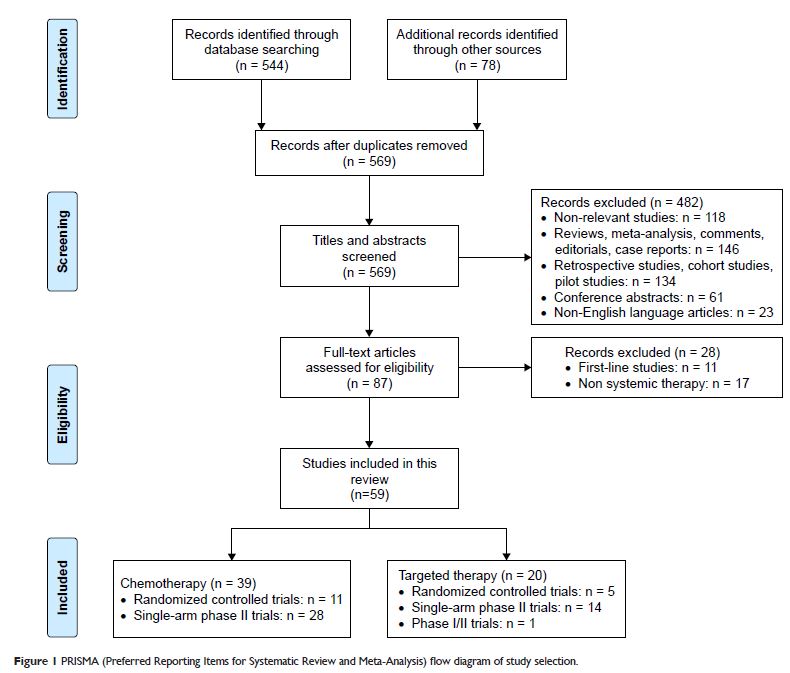108605
论文已发表
注册即可获取德孚的最新动态
IF 收录期刊
- 3.4 Breast Cancer (Dove Med Press)
- 3.2 Clin Epidemiol
- 2.6 Cancer Manag Res
- 2.9 Infect Drug Resist
- 3.7 Clin Interv Aging
- 5.1 Drug Des Dev Ther
- 3.1 Int J Chronic Obstr
- 6.6 Int J Nanomed
- 2.6 Int J Women's Health
- 2.9 Neuropsych Dis Treat
- 2.8 OncoTargets Ther
- 2.0 Patient Prefer Adher
- 2.2 Ther Clin Risk Manag
- 2.5 J Pain Res
- 3.0 Diabet Metab Synd Ob
- 3.2 Psychol Res Behav Ma
- 3.4 Nat Sci Sleep
- 1.8 Pharmgenomics Pers Med
- 2.0 Risk Manag Healthc Policy
- 4.1 J Inflamm Res
- 2.0 Int J Gen Med
- 3.4 J Hepatocell Carcinoma
- 3.0 J Asthma Allergy
- 2.2 Clin Cosmet Investig Dermatol
- 2.4 J Multidiscip Healthc

晚期胰腺癌二线治疗的现状与困境:有一线希望吗?
Authors Hua J, Shi S, Liang D, Liang C, Meng Q, Zhang B, Ni Q, Xu J, Yu X
Received 23 February 2018
Accepted for publication 28 May 2018
Published 6 August 2018 Volume 2018:11 Pages 4591—4608
DOI https://doi.org/10.2147/OTT.S166405
Checked for plagiarism Yes
Review by Single-blind
Peer reviewers approved by Dr Amy Norman
Peer reviewer comments 2
Editor who approved publication: Dr Takuya Aoki
Abstract: Pancreatic cancer remains one of the most lethal malignant
diseases worldwide. The majority of patients present with advanced disease and,
therefore, need palliative chemotherapy. Some chemotherapeutic regimens have
been well established as first-line therapies and have been shown to increase
survival; however, almost all patients with advanced pancreatic cancer will
experience disease progression after first-line therapy. Nevertheless, many
patients who retain good performance status after initial treatment remain good
candidates for additional therapy. Historically, few studies have assessed
second-line therapy, with most reports representing small phase II trials with
variable findings; however, clinical research for second-line treatment has
increased in the past decade, and several randomized controlled trials using
different regimens have been published. The current literature shows varying
results on treatment efficacy and tolerability. Thus, we reviewed the published
data on the use of chemotherapy in the second-line setting for the treatment of
advanced pancreatic cancer.
Keywords: pancreatic cancer, second-line, chemotherapy, targeted therapy
